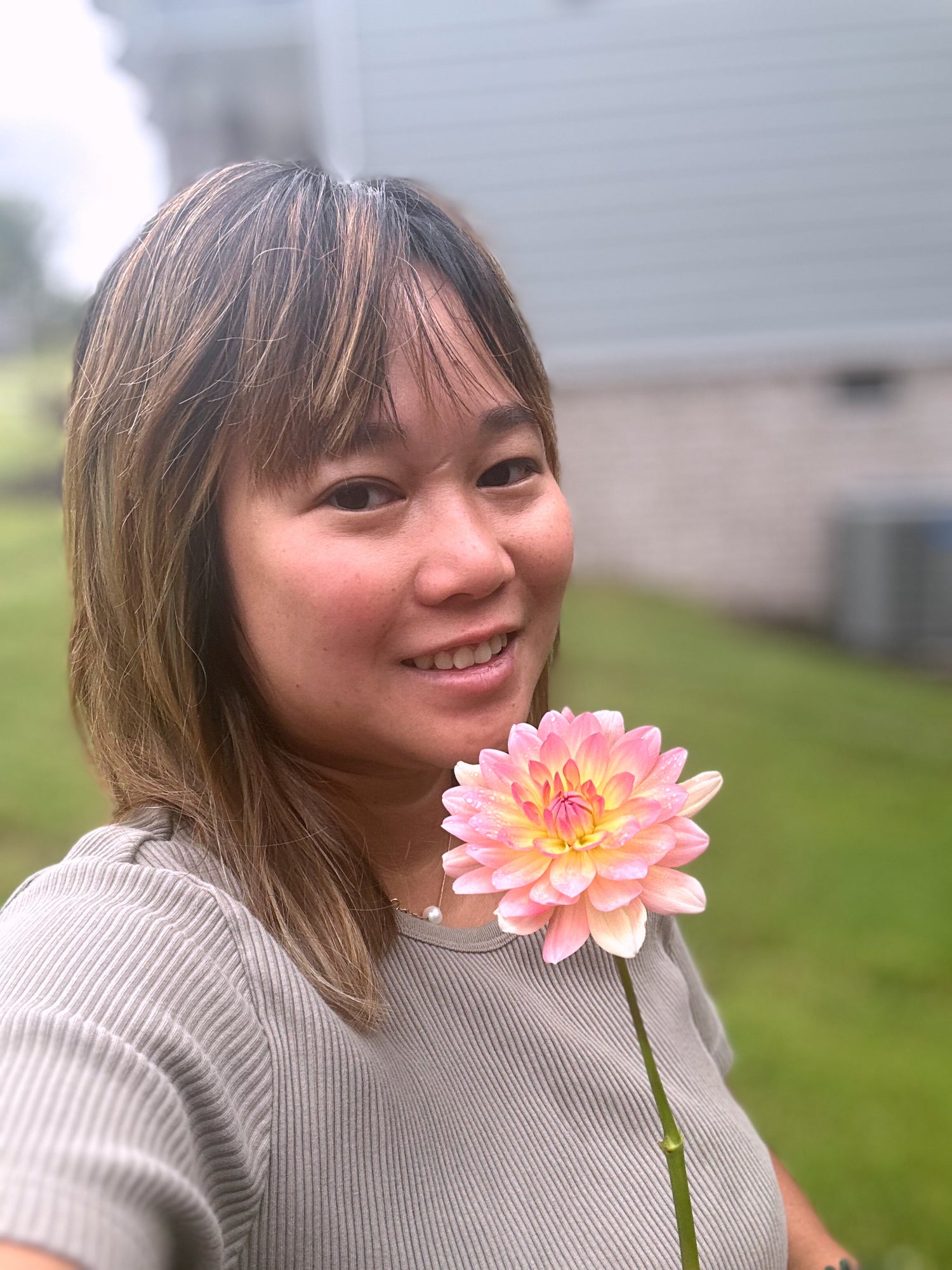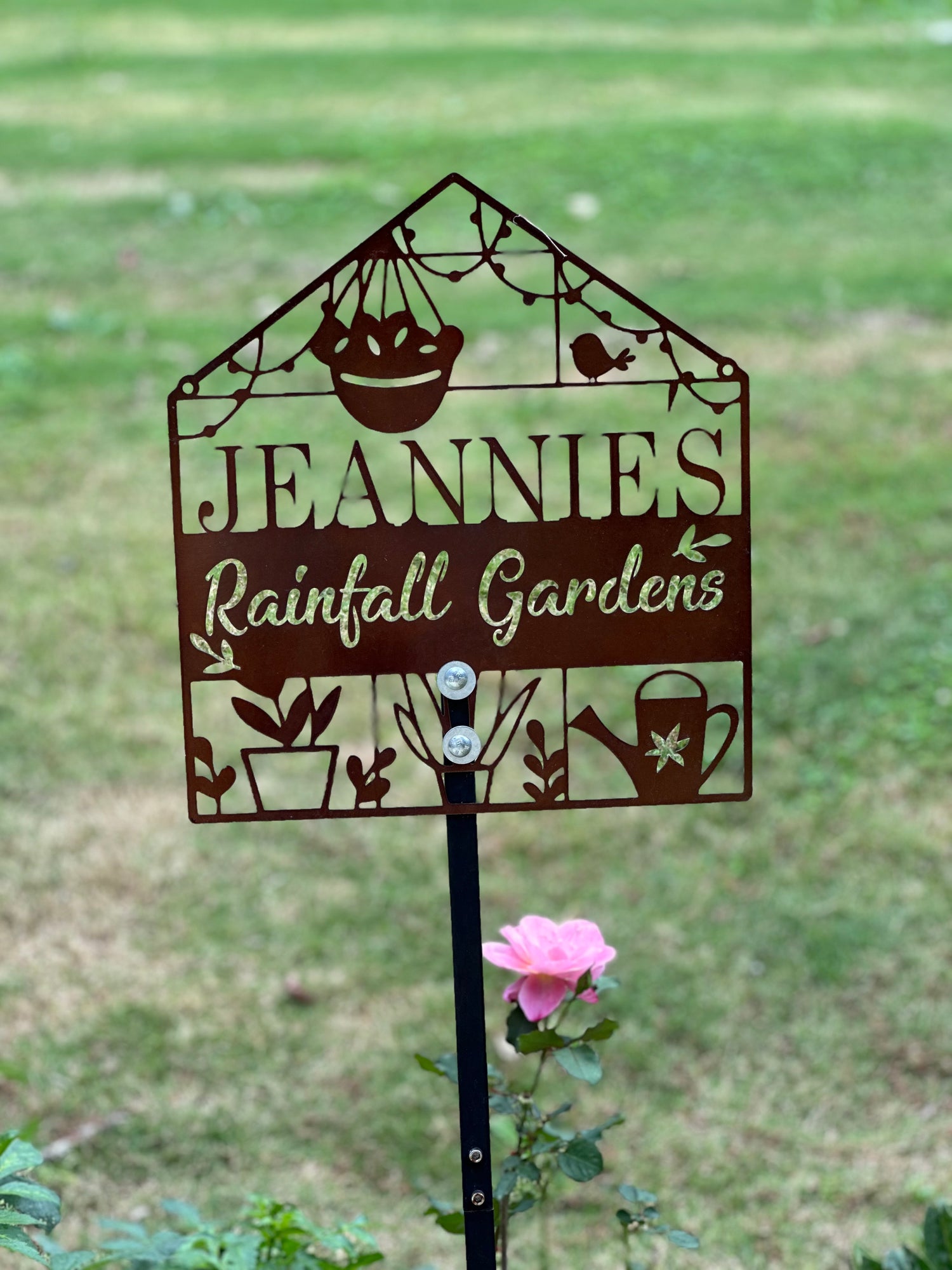About

Hi, I'm Jeannie
I live in Signal Mountain, TN with my husband Zane, our two boys ( 4 & 1 years old), our Australian Shepherd puppy Flora (2 years old), and my own Mama who moved in with us to help with the boys. She’s my extra arms lol.
I created Rainfall Gardens to share my journey in creating a kid-friendly, flowers filled outdoor space for my family. My vision of a cut flower garden has really become a reality and I’ve been so excited to share the blooms with others.
Our house is situated on a downward slope, leading to a small creek. The house was a dream house for us but it also came with lots of problems, mostly drainage issues and erosion controls. I’ve learned so much from my County Extension Office and my own research to use landscape and plants to help with those problems. So for me, my plants and flowers aren’t only pretty to look at, but also have practical functions to help protect our land, and provide food and shelter for wildlife.
"So neither the one who plants nor the one who waters is anything, but only God, who makes things grow" 1 Corinthian 3:7

Rainfall Gardens
The name Rainfall Gardens came from my favorite song “A Little Fall of Rain” in Les Misérables, sang by the character Eponine in which my favorite line was “and rain will make the flowers grow”.
Rainfall Gardens is inspected and licensed yearly by the Tennessee Department of Agriculture and any plant suspected of disease will be disposed.
DAHLIA VIRUS & DISEASE PREVENTION
At Rainfall Gardens, dahlias are not tested individually to be proven free of virus. Unless growing in isolation, it’s unrealistic to eradicate all viruses, pests and diseases, especially when there're neighbors growing dahlias nearby and mites and other disease carrying insects can travel with the wind.
Instead, we focus on what we can actually control to help the dahlias grow strong and healthy, since strong plants are less susceptible to pest and disease overall.
- taking soil test yearly and adding soil amendments as recommended
- introducing predators/beneficial insects to reduce pest population. We use green lacewings, predator mites and beneficial nematodes
- sourcing tubers and cuttings only from reputable growers
- using grow bags to reduce contamination
- sanitizing tools between plants using Virkon S
- culling any suspicious plant to reduce the risk of genetic breakdown and/or spread of diseases.
We are still learning and updating our methods each year. If you have any question about our practices, feel free to reach out to us.
